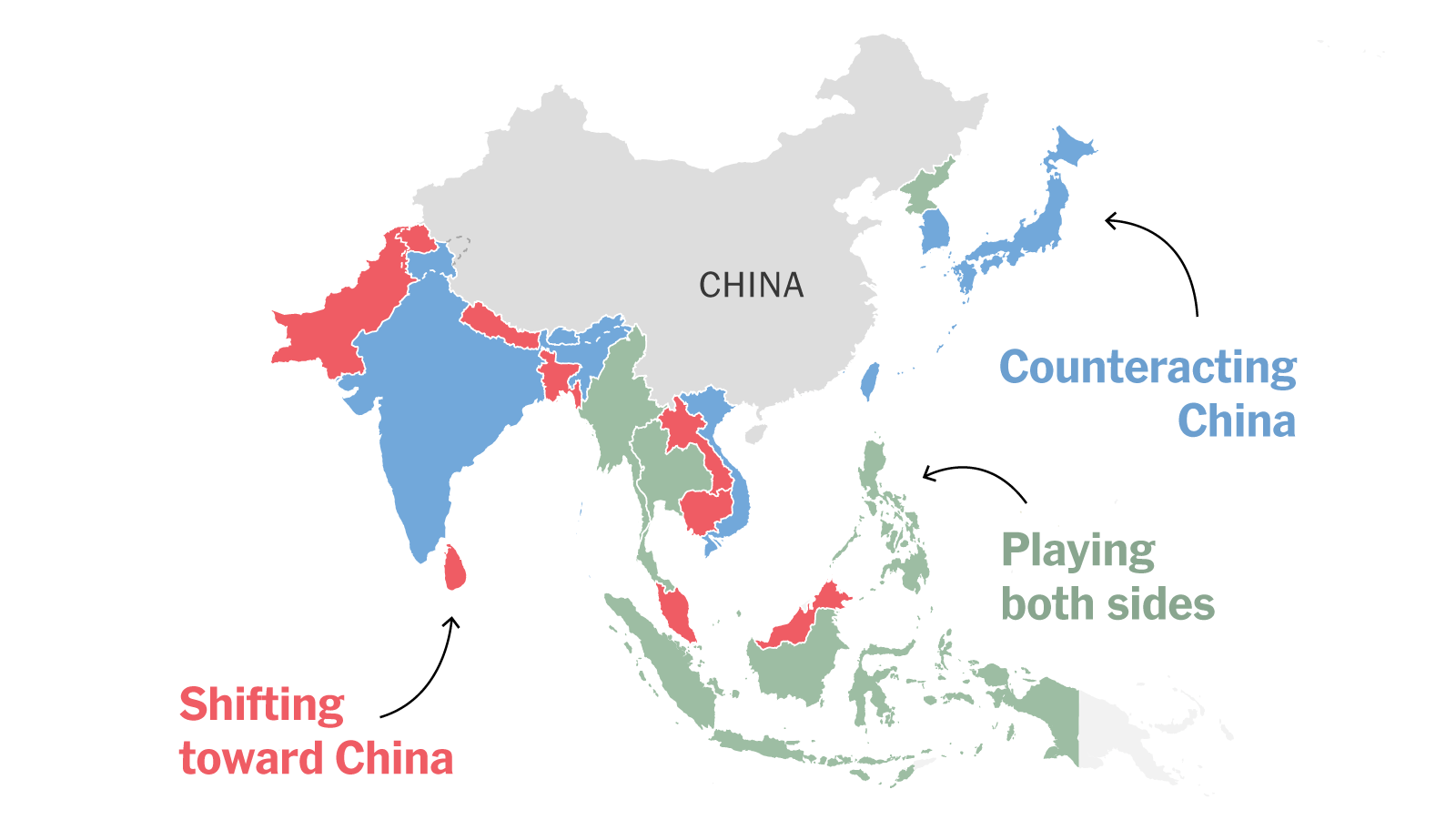In the tumultuous landscape of global politics, the Asia-Pacific region has once again emerged as a focal point of contention, echoing the tensions of a new Cold War era propelled by the United States' aggressive stance towards China. President Joe Biden's pursuit of an aggressive economic warfare strategy against China and his relentless efforts to form collective security alliances have turned the region into a battleground for geopolitical dominance, fostering a new era of militarism and alliances aimed at encircling China.
The expansion of the Quadrilateral Security Dialogue (comprising the US, Japan, India, and Australia) and subsequent inclusions of South Korea, New Zealand, and Vietnam, alongside the establishment of the Indo-Pacific Economic Framework, signify Biden's resolve to forge an anti-China bloc. The convergence of Asian leaders in NATO meetings and the consolidation of alliances like the Japan-Korea-US trilateral alliance further accentuate this anti-China Cold War bloc.
However, amidst these developments, a staunch resistance against US-led militarism has been brewing in Northeast Asia. The Seoul-based International Strategy Center orchestrated a two-day online forum that delved into the core issues, discussing strategies to combat warmongering and promote peace in the region. Key activists and scholars highlighted the perils of Washington's imperialistic agenda, emphasizing the threat posed by the Japan-Korea-US trilateral alliance, which intensifies war games and elevates the risk of regional and global conflict.
Simone Chun, a board member of the Korea Policy Institute, warned of the axis of war fostered by the trilateral alliance, emphasizing its implications for heightened militarization, historical revisionism, and the increased vulnerability of South Korea to the US-led conflicts. She urged a united front against US military aggression, advocating for North Korean sanctions' lifting, cessation of arms sales to South Korea, and withdrawal of US troops.
Youngmi Cho from the Korean Women’s Movement for Peace echoed the urgency for a formal peace treaty to end the Korean War, citing its role in perpetuating tensions and justifying regular joint US-Korea and US-Korea-Japan war games. Cho emphasized the need for a diplomatic solution and resource allocation towards climate change rather than war.
Daiwie Fu from Taiwan highlighted the anti-war petition against arms, emphasizing Taiwan's need for autonomy and neutrality amid US-China tensions. Fu stressed the importance of international support in preserving Taiwan's status quo and averting US-PRC conflict.
Hideki Yoshikawa, Director of Okinawa Environmental Justice Project, underscored Okinawa's prolonged struggle against militarization and colonization, particularly the ongoing resistance to the Henoko Base construction. He highlighted Okinawa's role in the US military strategy and urged international solidarity to combat militarism.
The narratives shared during this forum underscored the urgent need for global solidarity against US militarism in the region, emphasizing the interconnectedness of struggles against militarization, environmental degradation, and the push for peace. From opposing historical revisionism to demanding diplomatic resolutions and demilitarization, these activists and scholars advocate for a collective movement to counteract the escalating threats of conflict and war in Northeast Asia.

